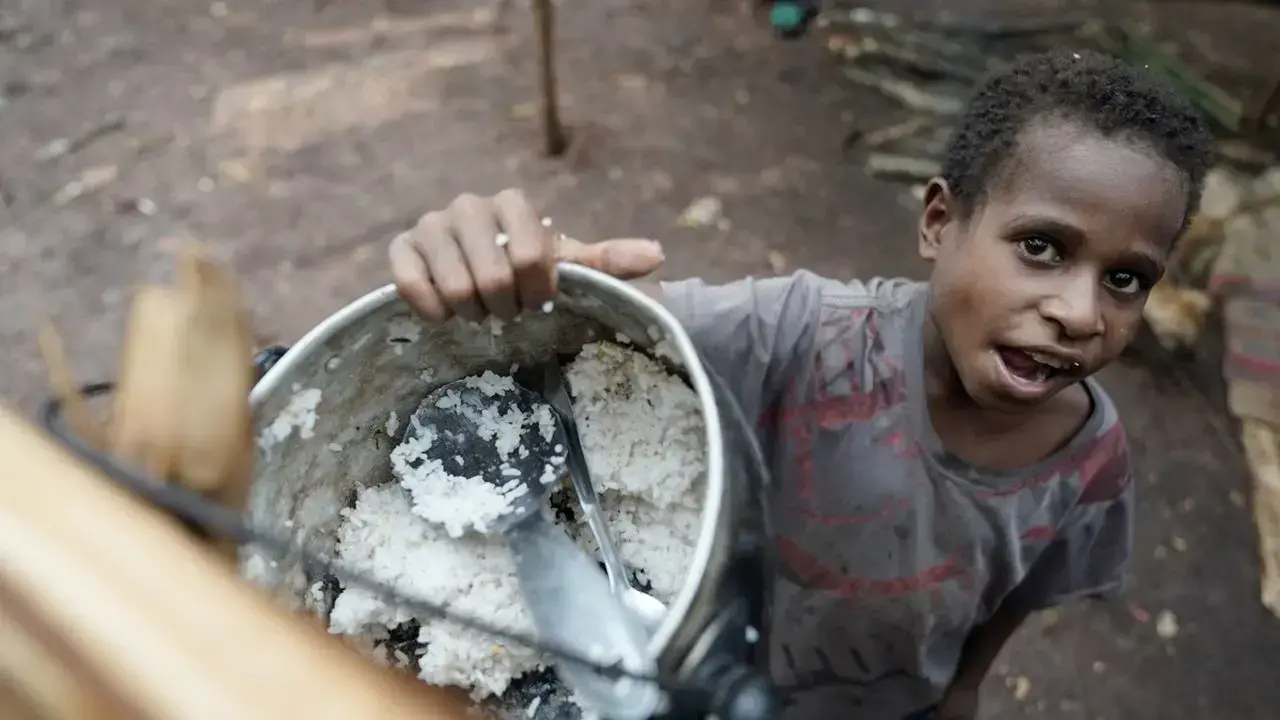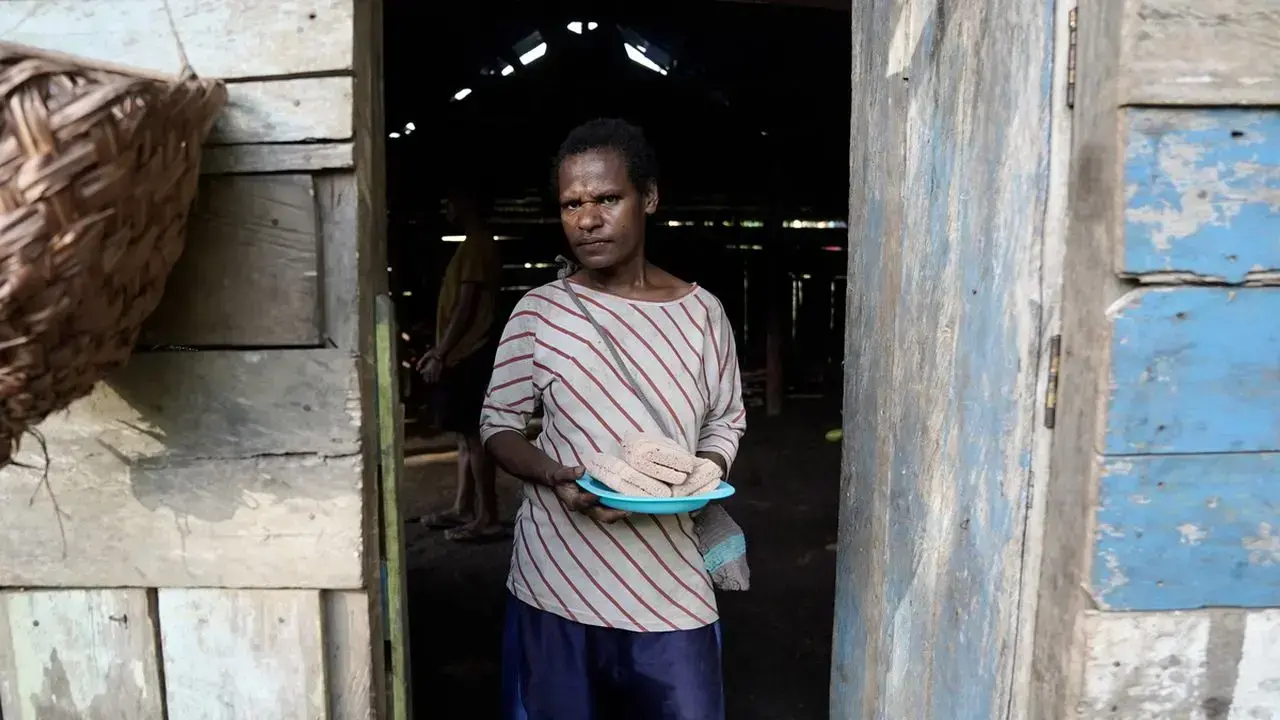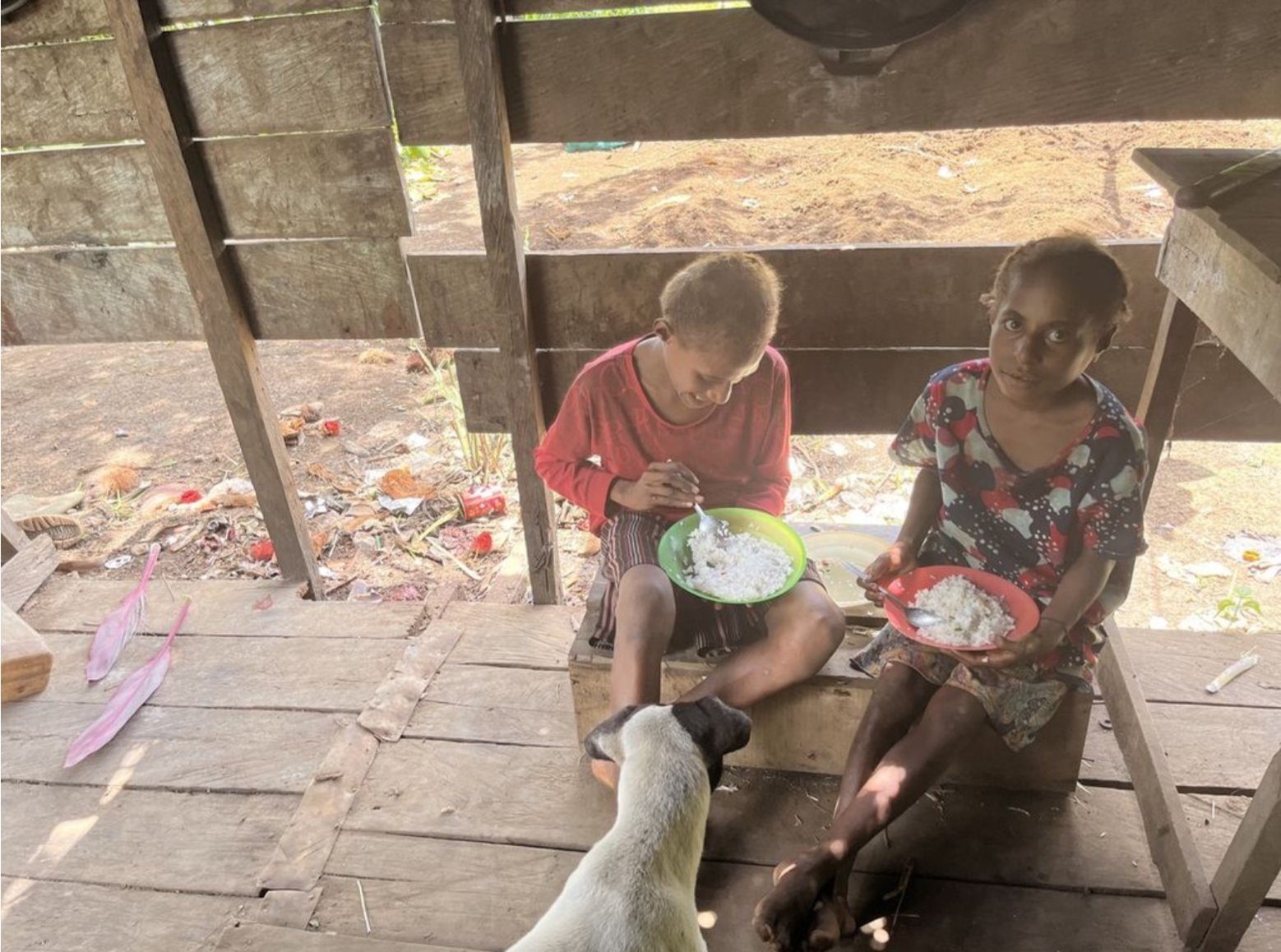How do you report on “gastrocolonialism,” a concept that is not yet broadly known? Our Rainforest Journalism Fund (RJF) Southeast Asia grantees have turned an unfamiliar term into powerful journalism stories, popularizing the concept across Indonesia.
RJF will host a webinar on gastrocolonialism. Register here.
What is gastrocolonialism and who created it?
You have probably heard about colonialism, but what is gastrocolonialism? It happens when food produced and distributed by large companies replaces the traditional food systems and diets of local communities and, in the process, triggers malnutrition and illness.
The term was coined by a scholar from the Pacific island of Guam, Craig Santos Perez, when he studied how the food and health systems of communities in Hawaii were eroded by large-scale imports of cheap, low-quality, processed food made by multinational companies.
What happened in Hawaii is also happening in West Papua, Indonesia. Communities in Papua used to have abundant nutritious food sources. However, their diet drastically changed when the government introduced rice, then noodles, and turned Papua’s lands into large-scale monocultures.
RJF will host a webinar on gastrocolonialism. Register here.

Gastrocolonialism as a starting point for powerful journalism
In the Hungry People at Merauke Food Estate project, RJF Southeast Asia grantees Ahmad Arif and Saiful Rijal Yunus investigated how Papuans were separated from their food system because of a massive food estate project.
In Papua, a food estate program initiated in 2010 has been revived by the country’s current administration. Despite criticism about its environmental and social impacts, the Merauke Integrated Food and Energy Estate (MIFEE) project is currently operating and affecting the traditional communities.
But how did our grantees demonstrate that gastrocolonialism is happening in the region? How did they reveal connections between the food estate and the deteriorating health of the locals?
In the "Skin and Bones for Children" story, the journalists departed from the rising case of malnutrition in the region and talked with parents whose children are experiencing it. In the story "Marind Anim People Forced To Leave Local Food System," they identified that the rich local food system and diet have been replaced by merely rice and instant noodles. Our grantees demonstrated this by visualizing in detail how the food sources have changed, along with data on malnutrition cases, over years.
“By showing the effect (malnutrition cases) first, we hoped to draw public attention before we argue about the ‘why’ factor. We then explained why it happened with the piece about the failure of the food estate program, and the mistake of gastrocolonialism, that intersects with various social, economic, and cultural problems,” Arif explained to RJF.
"Food Scarcity in Merauke" led the readers to the food estate program that is currently being developed, but is causing food scarcity in Papua. In the fourth piece of the reporting series, "Repeated Failure of Food Estate Programs," RJF grantees were able to show how the program was lousy-designed, poorly-implemented, and it blocked residents from physically accessing food sources.
“We approached this project with intersectionality in mind. This concept might rarely be used by journalists, but it helped us to analyze and understand how the food estate affected transmigrant populations and local Papuans differently,” Arif added.
“We compared four villages. We found that villages of local Papuans are the ones that are most vulnerable to malnutrition and stunting. We then can say that in Merauke, the external food system has replaced the local food system, causing malnutrition. Therefore gastrocolonialism has happened,” he explained.
By gradually showing all the evidence, including stunning photographs, testimony, and data visualization, the journalists prove that gastrocolonialism is happening in the region. The governing elite is designing failed programs that target the food stability of local Papuans and more can be read in "Gastrocolonialism in Merauke."

Gastrocolonialism: why the English term?
The decision to use "gastrocolonialism" in English for stories published for bahasa Indonesia-speaking audiences was a strategic one. The Indonesian phrase for it, “penjajahan pangan,” is almost nonexistent in the search engine result. Therefore the English term was used instead.
“We intrigued people to pay attention and ask what gastrocolonialism is all about. I also tweeted a picture of military personnel giving instant noodles to local Papuans, from the state apparatus to marginalized citizens, which represents gastrocolonialism in its extreme. I had anticipated it would become a controversy, and it did. In the end, the term could be introduced and people are aware,” Arif reflected.
Tips on reporting on gastrocolonialism
Covering stories on gastrocolonialism requires high sensitivity and respect. “We need to proceed with extreme caution when we conduct interviews and take photographs. One of the ways was to conduct informal interviews. We also involve village elders to help us spread questionnaires and explain informed consent,” said Arif.
Immersion with local cultures and customs is key in understanding the lives and situations faced by the local communities.
“We also lived in their villages for three weeks. We ate what they ate, we slept there, we followed youths who hunted for food but to no avail,” he added.
Lastly, he emphasizes that journalists must be aware of the asymmetrical power relation between media professionals and the community they are covering. “Journalists need to be responsible. Think how to ensure that our sources won’t become vulnerable after our reporting, especially on a topic that is so controversial,” he concluded.
RJF will host a webinar on gastrocolonialism. Register here.




